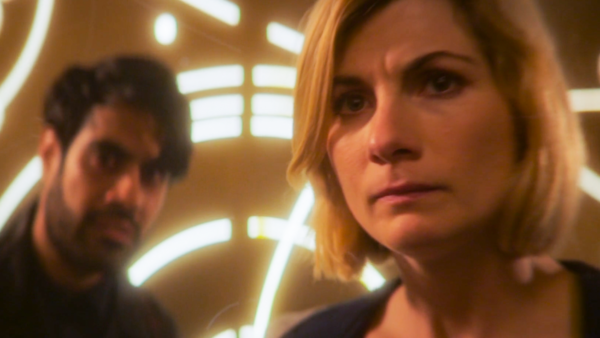Doctor Who Series 12: 10 Huge Talking Points After The Timeless Children
Did the Doctor Who series 12 finale deliver in it's promise to be a game-changer?

The Timeless Children was heralded as a ground-breaking episode, a game-changer that would have massive ramifications for the series going forward. Not surprisingly, the fanbase had been awash with speculation, with some looking forward to a complete rewrite of the Doctor’s backstory and others hoping that the Timeless Child revelations wouldn’t change the core elements of the myth.
There is a lot to process, and as expected we were left with more questions than answers, but was there really that much substance behind the style? The special effects might not have been all that spectacular, but the design was stunning. From the Game of Thrones-like scenes of the Doctor and the Master standing in the ruins of the citadel, to the newly modelled and part-retro Cybermen and their ship.
The plot, however, was decidedly thin, deliberately so to allow for the long detours into the Matrix and the Doctor’s secret past. The biggest casualties were the Cybermen, who after the promise of Ashad’s reinvention turned out to be the opposite of what many were expecting. Instead of Cybermen driven by human pain and emotion, Ashad’s plan was to turn them all into robots. As the Master rightly points out, how terribly unimaginative.
Ashad then goes the way of other villains before him, such as Daniel Barton, and having served his purpose is immediately dispensed with. His backstory was never explored. The Cybermen played second fiddle to the Master’s revenge mission and it was almost as easy as pie for him.
Not every questions raised during and in the lead up to The Timeless Children was answered, so what are we still desperately needing to know?
10. How Did The Master Destroy Gallifrey?

So now we know why the Master committed genocide against his own people and left Gallifrey in ruins. While messing around in the Matrix, the repository of all Time Lord memories, he’d discovered that the Doctor wasn’t just any old Time Lord. She was the Timeless Child, an alien with the ability to regenerate an infinite number of times. And that hurts. Boy, does that hurt.
Already riddled with jealousy and a terrible inferiority complex, the Master cannot bear the thought that the Doctor was special all along. But to make matters worse, thanks to her adoptive mother’s genetic experiments, the Doctor’s DNA lives inside every Time Lord. Including him. Ouch.
We get that he’s hurting, but the vengeance is extreme, even for someone as unhinged as the Master. We only see the citadel in ruins, but the whole planet has been turned into a wasteland. There is no one left. The Time Lords are one of the most advanced races in the Doctor Who universe, and Gallifrey fought and survived the Time War thanks to its arsenal of forbidden weapons, the War Doctor included. So how did he pull it off?
Before making his alliance with the Cybermen, the Master appears to have been acting as a lone wolf, making his feat all the more extraordinary. We are supposed to just accept the Time Lords’ capitulation without any flashbacks or explanations. How was the Master even able to wander around the Panopticon and infiltrate the Matrix in the first place? The last time we saw it, the Matrix was being patrolled by the Cloister Wraiths. Freed from the protective shell of a Bubble Universe, this Gallifrey was hidden at the end of space and time.